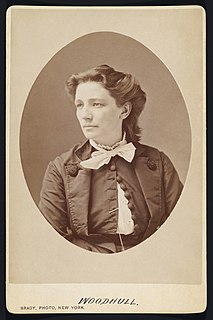A Quote by William Jennings Bryan
The chief duty of governments, in so far as they are coercive, is to restrain those who would interfere with the inalienable rights of the individual, among which are the right to life, the right to liberty, the right to the pursuit of happiness and the right to worship God according to the dictates of ones conscience.
Related Quotes
the right to marry whoever one wishes is an elementary human right ... Even political rights, like the right to vote, and nearly all other rights enumerated in the Constitution, are secondary to the inalienable human rights to 'life, liberty and the pursuit of happiness' proclaimed in the Declaration of Independence; and to this category the right to home and marriage unquestionably belongs.
Your constitution guarantees to every citizen, even the humblest, the enjoyment of life, liberty, and property. It promises to all, religious freedom, the right to all to worship God beneath their own vine and fig tree, according to the dictates of their conscience. It guarantees to all the citizens of the several states the right to become citizens of any one of the states, and to enjoy all the rights and immunities of the citizens of the state of his adoption.
Rights mean you have a right to your life. You have a right to your liberty, and you should have a right to keep the fruits of your labor....I, in a way, don’t like to use those terms: gay rights, women’s rights, minority rights, religious rights. There’s only one type of right. It’s the right to your liberty.
We hold these truths to be self-evident, that all men are created equal, that they are endowed by their Creator with certain inalienable rights, among these are life, liberty, and the pursuit of happiness, that to secure these rights governments are instituted among men. We...solemnly publish and declare, that these colonies are and of a right ought to be free and independent states...and for the support of this declaration, with a firm reliance on the protection of divine providence, we mutually pledge our lives, our fortunes, and our sacred honour.
[I]t is impossible for those, who believe in the truth of Christianity, as a divine revelation, to doubt, that it is the especial duty of government to foster, and encourage it among all the citizens and subjects. This is a point wholly distinct from that of the right of private judgment in matters of religion, and of the freedom of public worship according to the dictates of one's conscience.
It is not the right of property which is protected, but the right to property. Property, per se, has no rights; but the individual - the man - has three great rights, equally sacred from arbitrary interference: the right to his life, the right to his liberty, the right to his property The three rights are so bound together as to be essentially one right. To give a man his life but to deny him his liberty, is to take from him all that makes his life worth living. To give him his liberty but take from him the property which is the fruit and badge of his liberty is to still leave him a slave.
We hold these truths to be self-evident: that all men are
created equal; that they are endowed by their Creator with certain
inalienable rights; that among these are life, and the right to
make that of another miserable by thrusting upon him an
incalculable quantity of acquaintances; liberty, particularly the
liberty to introduce persons to one another without first
ascertaining if they are not already acquainted as enemies; and
the pursuit of another's happiness with a running pack of
strangers.
Individualism regards man - every man - as an independent, sovereign entity who possesses an inalienable right to his own life, a right derived from his nature as a rational being. Individualism holds that a civilized society, or any form of association, cooperation or peaceful co-existence among men, can be achieved only on the basis of the recognition of individual rights - and that a group, as such, has no rights other than the individual rights of its members.
Before the tribunal of nature, a man has no more right to life than a rattlesnake; he has no more right to liberty than any wild beast; his right to the pursuit of happiness is nothing but a license to maintain the struggle for existence, if he can find within himself the powers with which to do it.
Even a superstitious man has certain inalienable rights: the right to harbor and indulge his imbecilities, provided only that he does not try to inflict them upon others by force; he has the right to argue for them as eloquently as he can. But he has no right to be protected from the criticism of those who do not hold them. He has no right to demand that they be treated as sacred. He has no right to preach them without challenge.



































